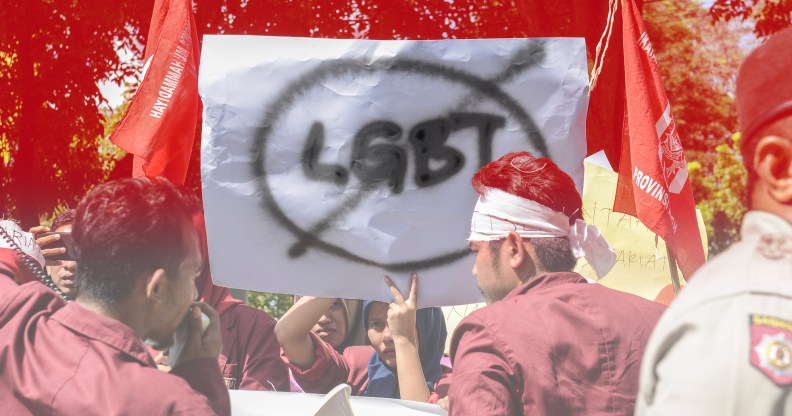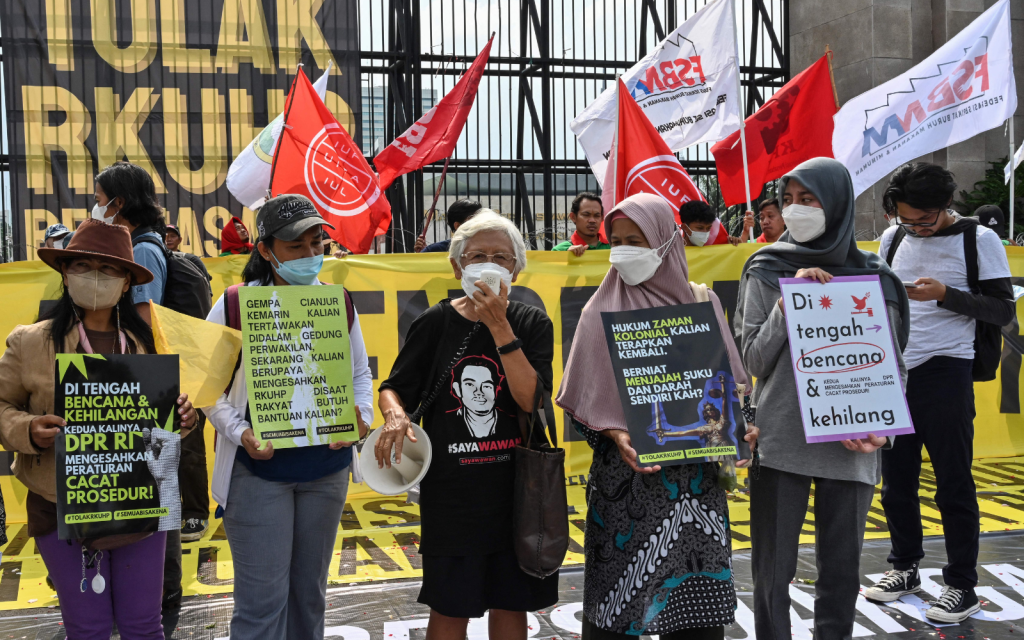Indonesia bans LGBTQ+ sex with shockingly regressive new criminal code

In 2022 Indonesia’s parliament passed a new criminal code making all sex outside of marriage punishable by up to a year in prison. (Getty)
Lawmakers in Indonesia have, in effect, banned same-sex intimacy under a new criminal code.
The newly-enacted bill outlaws extramarital sex which, since same-sex marriage is outlawed in the country, essentially means all LGBTQ+ sexual relationships are now banned – even for people visiting the country.
Those who break the new law can face up to one year in prison.
It was passed by parliament during a plenary session on Tuesday (6 December) and is set to be enacted once president Joko Widodo signs it.
All nine political parties endorsed the criminal code revision, which also adds limits to the public’s autonomy in criticising public institutions.
The revisions involve removing existing regulations – which have been debated for decades – that date back to Indonesia’s time as a Dutch colony.
“We have tried our best to accommodate the important issues and different opinions which were debated,” Yasonna Laoly, minister of law and human rights, said.
“However, it is time for us to make a historical decision. on the penal code amendment and to leave the colonial criminal code we inherited behind.”
The debates have been defined by protests from activists who believe the provision takes away “the rights of citizens to voice their opinions.”.

Prior to the vote, the US ambassador to Indonesia, Sung Yong Kim, said he was concerned about “morality clauses” that could have a “negative” impact on business and intercontinental relationships.
Amnesty International Indonesia director Usman Hamid said: “We are going backwards… repressive laws should have been abolished but the bill shows that the arguments of scholars abroad are true, that our democracy is indisputable in decline.
“These provisions will make LGBTI Indonesians even more of second-class citizens, even more invisible.”
Violent demonstrations erupted after an official bill was drafted in 2019, causing delays to the legislation, which president Widodo claimed was to get more feedback from the public.
But little changed from the legislation’s draft after being approved.
More recently, around 100 people protested against the bill before the vote on Monday (5 December). More protests are expected to be held outside of parliament later on Tuesday.
Several human rights groups have labelled Indonesia as one of the most hostile places for LGBTQ+ people.
There are little to no protections in place for both systemic and workplace discrimination, while practices such as conversion therapy are still in place.
According to a 2019 Pew Research report, just 9 per cent of Indonesians say that homosexuality is acceptable.

